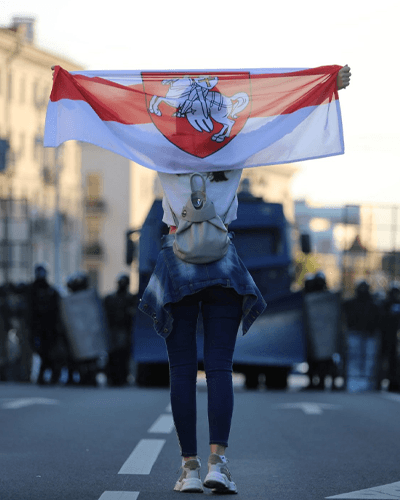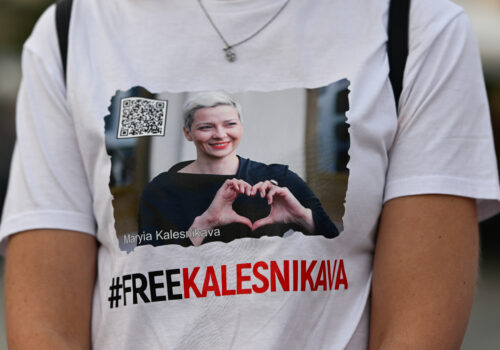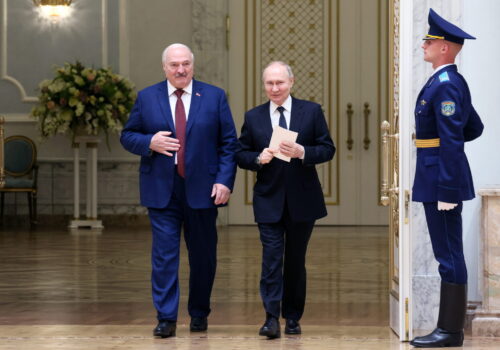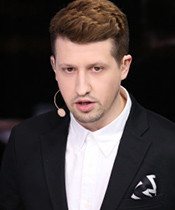After months of protests, Belarusians cast their votes on August 9 for the presidential election. The five-term president of Belarus, Alyaksandr Lukashenka, faces the most severe threat to his regime since he took power more than a quarter century ago. For months, protests erupted after opposition candidates were either imprisoned or disqualified. Undeterred by mass arrests and fines, opposition forces rallied against Lukashenka’s government and the immediate election results. Government-sponsored exit polls show that President Lukashenka won 80 percent of the vote, but these results face broad claims of election fraud, triggering further protests and a troubling police crackdown.
The situation is further complicated by the arrest of alleged Russian operatives in Minsk, sparking wild speculation of foreign intervention. Will the outcome of the election change Belarus’ politics? How will the results affect Belarus’ relations with Europe, Russia, and the United States? Can popular will bring about a genuinely democratic transition in spite of government crackdowns on dissent and free information?
Konstantin Eggert, columnist at Deutsche Welle; Natalia Kaliada, co-founding artistic director and CEO of the Belarus Free Theatre; George Kent, deputy assistant secretary in the European and Eurasian Bureau at the US Department of State; Hanna Liubakova, journalist at Outriders; and Franak Viačorka, vice president of the Digital Communications Network, analyze the election results. Christian Caryl, editor at The Washington Post, moderates the discussion.
spotlight

Belarus
Belarus’ August 2020 presidential election saw widespread protests and serious fraud allegations as President Lukashenka claimed victory against popular opposition candidate Sviatlana Tsikhanouskaya. Will Belarus begin its transition to democracy, or will Belarusians face further repression as Lukashenka’s rule falters?
RELATED experts

The Eurasia Center’s mission is to promote policies that strengthen stability, democratic values, and prosperity in Eurasia, from Eastern Europe in the West to the Caucasus, Russia, and Central Asia in the East.




